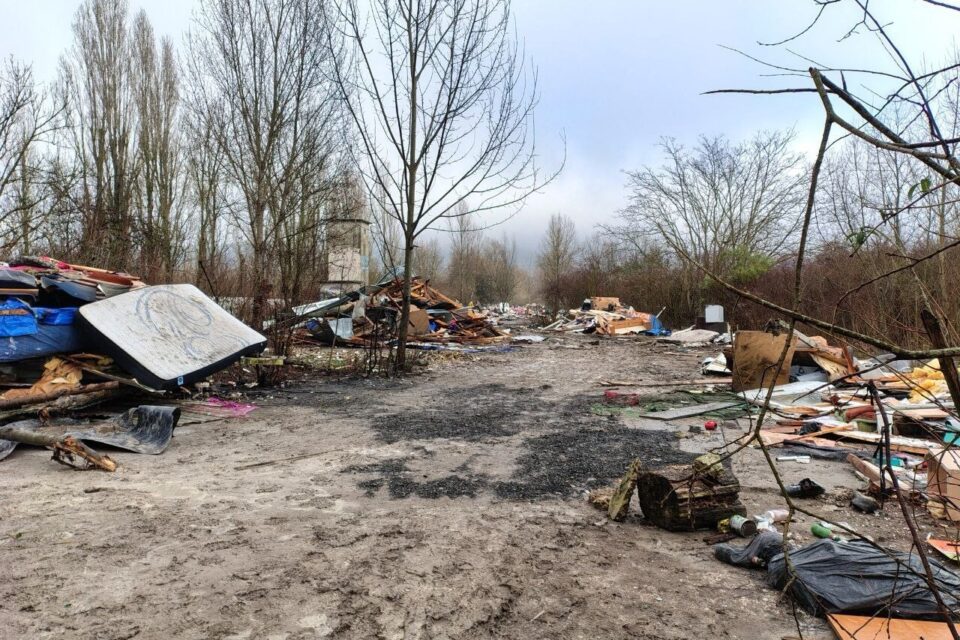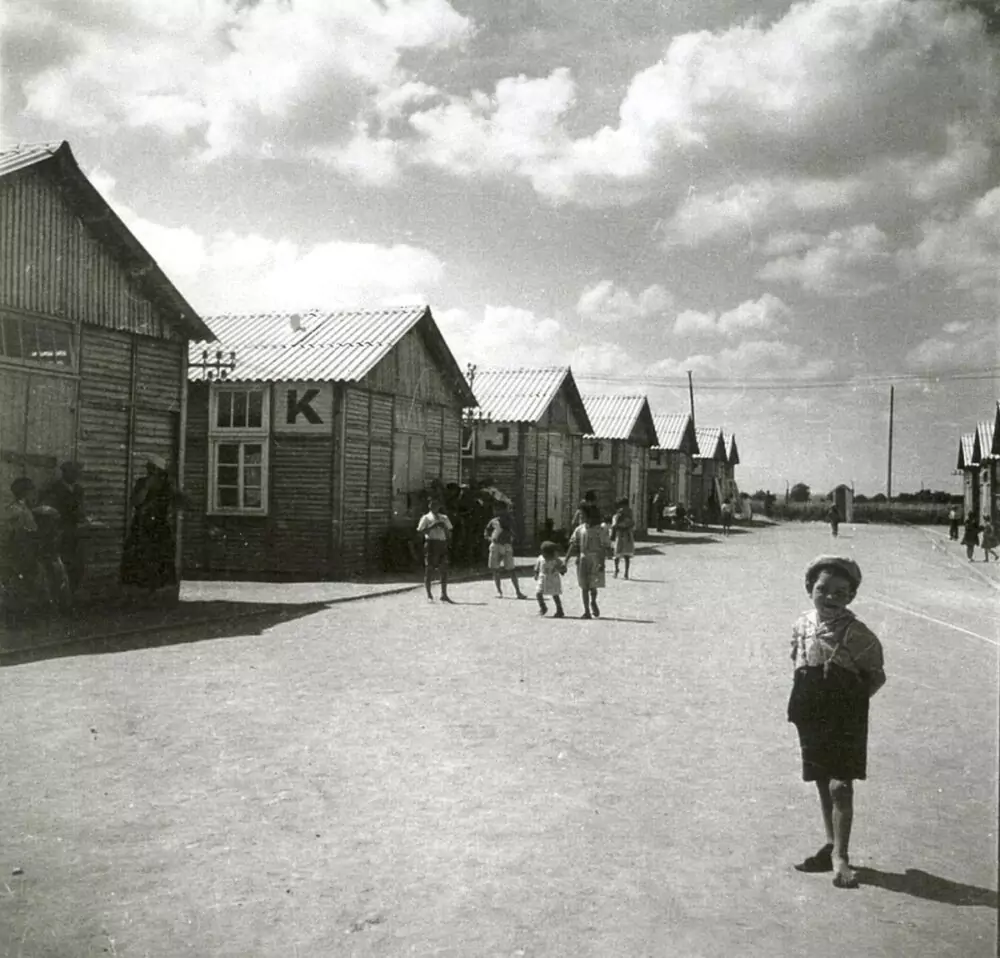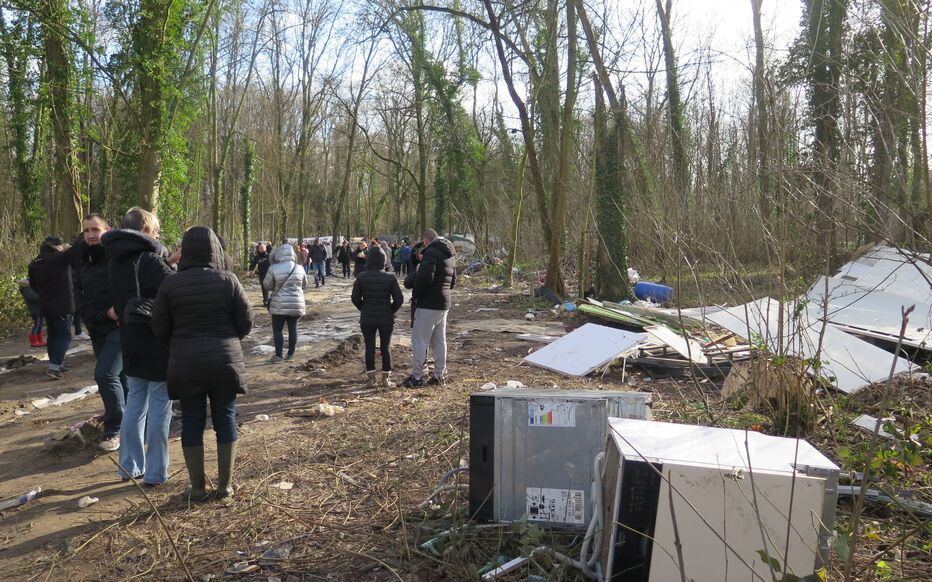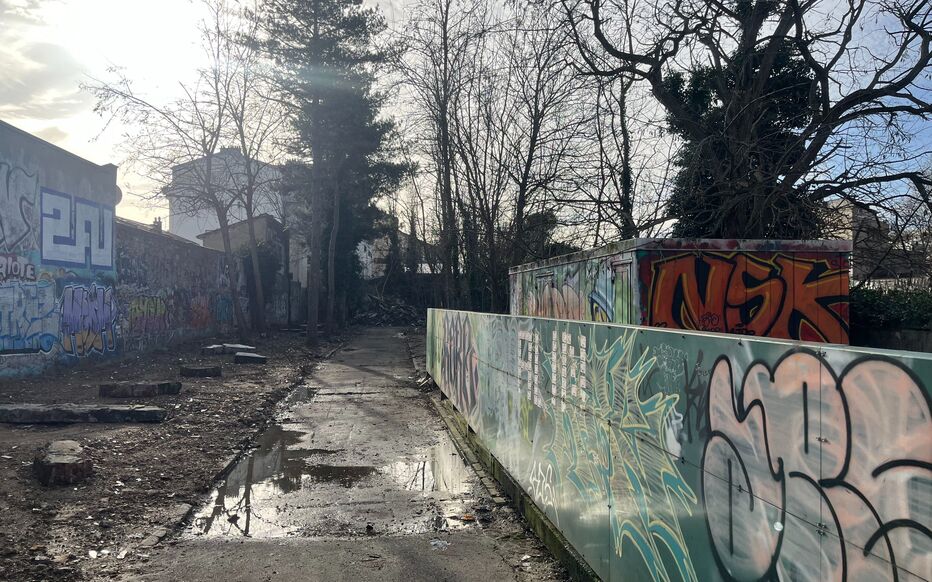After the lynching of a sixteen-year-old Rroma in Pierrefitte-sur-Seine, a new debate about the Rroma and the contact with them has started in France. However, as expected, one doesn’t only find expressions of compassion and condemnation of the barbaric lynching, but also expressions of sympathy for the bourgeois vigilantism. This worrying trend can for instance be identified in the article by Seelow (2014), in which residents of Pierrefitte-sur-Seine express their displeasure with Rroma and trivialize the act of revenge on the young Rroma as retributive justice: “The Roma, they are in same filth as we are […], but they take everything they see, they have no inhibitions. One day, I left my new fridge on the sidewalk and when I came out they were loading it. The Roma are poor that steal from the poor. The fact that they go for a walk, that’s all right, but you shouldn’t go to people like that, it’s like rape. He went crazy, this kiddo. Afterwards, the young went too far and it degenerated, because of the group effect.” More eyewitness accounts from local residents follow, that reduce the Rroma to a wild, uncivilized horde. This is not differentiated at all. Instead, the Rroma are accused of a collective predisposition to criminality. The author of the article, Soren Seelow, is content to reflect the opinions of local residents, who proclaim an increase in crime since the influx of the Rroma. However, it is surprising that the inhabitants of the Quartier des poètes in Pierrefitte-sur-Seine admit that rough manners prevail in the quarter. Many are said to be poor themselves and to have a criminal record. That is why almost no one calls the police if something happens, it is said. However, it is very dangerous to equate poverty with an automatic disposition for crime. Many poor people are living decent and blameless. Once again, these are statements from individuals.
Meanwhile, senior French politicians condemned the deed. This view of the events is at odds with the French Rroma policies that have consistently evicted immigrated Rroma and discouraged them of integrating. Politicians of the right-wing nationalist Front National, as Louis Alliot, justify the lynching as the response of the population to a non-functioning state of law. That such acts of violence are promoted by a xenophobic propaganda against Rroma is not mentioned here. The politicians and journalists who accuse Rroma of collective criminality and antisocial behaviour are accomplices of this drift towards violence. Their marginalisation and exclusion promotes violence, as it is now happening in Pierrefitte-sur-Seine. The press secretary of Romeurope, Laurent El-Ghozi also criticised this. One must not be surprised that the integration of immigrant Rroma fails, he suggest, if one consistently prevents them from integrating into society. Bastié (2014) denies this viewpoint. She accuses the sociologist Eric Fassin of producing ideological hot air. It is, she states, not the political discourse about the Rroma which is responsible for the recent violence, but the state, which does not comply with its obligations and has given rise to areas of legal freedom, where people take the law into their own hands. This, she argues, is complemented with the economic crisis and the new migration flows since the creation the Schengen area. Bastié is right that the marginalisation of the Rroma is not only due to the political discourse. However, she is wrong when she trivializes it with her criticism and declares it irrelevant. Words are often the first step, followed by deeds. Therefore, on the contrary: intellectual arson exists. Le Monde (2014/II) also accuses the silence of the French public in its latest editorial. The indifference of large parts of society implies that the denigration of the Rroma has become an accepted fact and has slowly but steadily established itself in French society. This indifference is very dangerous and prone to more vilence. It means a de facto toleration of massive injustices and grievances (compare De Gouyon Matignon 2014 I/II, Euzen 2014, Le Monde 2014, Molinié 2014).
- Bastié, Eugénie (2014) Roms : Pas, ça, Fassin ! In: Causeur online vom 18.6.2014. http://www.causeur.fr/roms-lynchage-racisme-28125.html
- De Gouyon Matignon, Louis (2014/I) Roms – Le “J’accuse” de Louis de Gouyon Matignon. In: Le Point online vom 18.6.2014. http://www.lepoint.fr/societe/roms-le-j-accuse-de-louis-de-gouyon-matignon-18-06-2014-1837493_23.php
- De Gouyon Matignon, Louis (2014/II) Roms, je vous aime. In: Le Huffington Post online vom 20.6.2014. http://www.huffingtonpost.fr/louis-de-gouyon-matignon/lutte-contre-le-racisme_b_5514143.html?utm_hp_ref=fr-international
- Euzen, Philippe (2014) Les Roms, « boucs émissaires idéaux » ? In: Le Monde online vom 17.6.2014. http://www.lemonde.fr/societe/article/2014/06/17/la-parole-publique-fait-des-roms-des-boucs-emissaires-ideaux_4439889_3224.html
- Le Monde (2014) Lynchage d’un jeune Rom : appel à cesser la « stigmatisation ». In: Le Monde online vom 17.6.2014. http://www.lemonde.fr/societe/article/2014/06/17/le-monde-politique-et-associatif-indigne-par-le-lynchage-du-jeune-rom_4440064_3224.html
- Le Monde (2014/II) Lynchage d’un jeune Rom : non à l’indifférence. In: Le Monde online vom 18.6.2014. http://www.lemonde.fr/societe/article/2014/06/18/lynchage-d-un-jeune-rom-non-a-l-indifference_4440343_3224.html
- Molinié, William (2014) Adolescent lynché à Pierrefitte: Les Roms, personae non gratae dans les cités? In: 20 minutes online vom 19.6.2014. http://www.20minutes.fr/societe/1406146-adolescent-lynche-a-pierrefitte-les-roms-personae-non-grattae-des-cites
- Seelow, Soren (2014) Lynchage d’un jeune Rom : « Ils sont dans la même merde que nous, mais ils prennent tout ». In: Le Monde online vom 18.6.2014. http://www.lemonde.fr/societe/article/2014/06/18/a-la-cite-des-poetes-on-est-condamnes-a-se-faire-justice-nous-memes_4440375_3224.html







